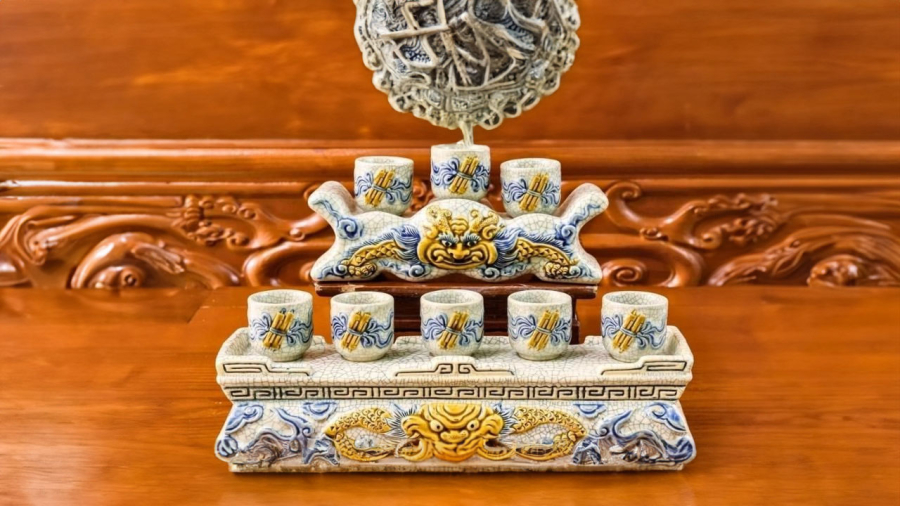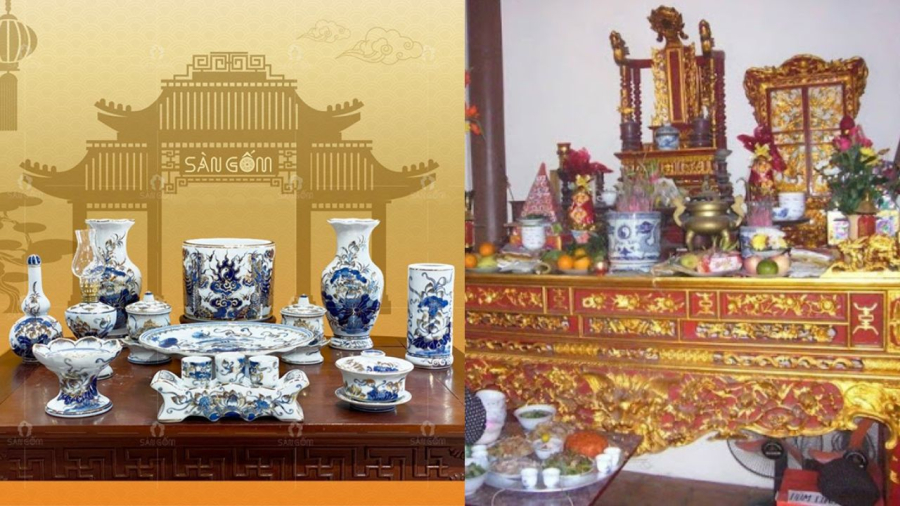Why Offer Water as a Religious Offering?
In the spiritual practice of offering prayers and tributes to ancestors and deities, water plays a significant role and holds a profound meaning. Water is symbolic of life and is believed to bring prosperity and good fortune. It is also considered a means of purification and a center for rebirth. From a Feng Shui perspective, water is associated with wealth and abundance, as it is believed to govern finances.
In daily life, water is an essential part of hospitality, and it is also crucial for our survival, serving as our primary source of food and drink. To the gods and ancestors, water represents wealth and possessions.
For Buddhists, water serves as a mirror for self-reflection and a tool for spiritual practice, helping them contemplate and gain insight into their surroundings and themselves.

You can use a water pitcher or a cup, depending on your family’s preference and circumstances, but water must always be present.
Why Use Tap Water for Offerings?
When making offerings at an ancestral altar, a Buddhist altar, or a shrine dedicated to deities, it is customary to use a water pitcher or cup filled with tap water or boiled and cooled water. This practice stems from a place of caution and meticulousness. However, it is worth noting that some believe that only tap water is suitable for offerings.
According to folk beliefs, spirits and ancestors consume tap water, and therefore, when making offerings to them, it is essential to use tap water so that they may receive the offerings. Other types of water are not considered acceptable in this context. Additionally, folk beliefs suggest that boiled water is intended for the living, and thus, it may not be suitable for the deceased. Furthermore, it is believed that when a person is alive, they have specific water preferences, and when making offerings, their descendants may honor those preferences. For example, if a person enjoyed drinking tea during their lifetime, their descendants may offer tea as a tribute.
However, when making offerings at a communal ancestral altar, such as those found in temples or community shrines, it is common for people to purchase bottled water and offer it either as a sealed bottle or by pouring it into a pitcher or cup. In their own homes, people typically use tap water from the faucet.

Folk beliefs hold that spirits and ancestors consume tap water.
In the context of a Buddhist altar, water serves as a tool for self-reflection and spiritual practice for Buddhists. The water used in this setting does not need to be tap water specifically; it can be boiled, filtered, or even bottled water. The key consideration is that the water is clean and pure. Buddhists use water as a means to reflect on their inner selves and strive for spiritual purity and tranquility.
The water placed on the Buddhist altar serves as a reminder to the person making the offering that life on earth should be lived with purity and tranquility, much like water, without discrimination based on social status, wealth, or intelligence.
Moreover, water symbolizes equality, as it is colorless and devoid of bias. Therefore, when setting up a Buddhist altar in your home, it is recommended to use filtered, distilled, or tap water. Boiled water is not ideal, as the process of boiling kills microorganisms, and colored or flavored beverages, such as tea, should be avoided to maintain the initial purity of the water. However, if you are offering water to the Buddha specifically, either boiled or tap water is acceptable, and you may also use water from a natural source, such as a spring.
How to Place Water on the Altar
When making water offerings, you can use a cup, a bowl, a bottle, or a water pitcher, depending on your family’s traditions and preferences. Typically, when purchasing altar accessories, you will find water pitchers that come with three or five cups. If your family does not use a water pitcher, you can simply use regular cups or a bottle instead. It is important to note that you should use an odd number of cups, such as one, three, or five, as odd numbers are associated with growth and development in spiritual beliefs, while even numbers are considered stagnant and related to negative energies.
A single cup or bowl represents singular focus and devotion. Using three cups symbolizes the three realms of existence: heaven, earth, and the underworld, as well as the three years it takes for the soul to fully detach from the earthly realm after death. Alternatively, five cups represent the five elements and the five directions of the universe.
The number of cups you use should be based on the available space on your altar, and it is not necessary to always use three or five cups. The important thing is to ensure that the water is placed in a prominent position, usually in front of the incense burner, where it can be easily seen.
This information is based on spiritual beliefs and practices and may vary depending on regional customs and personal interpretations.





























